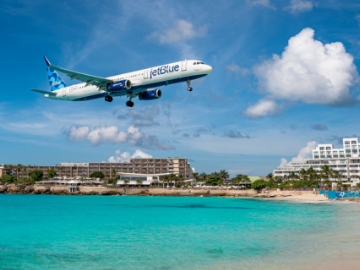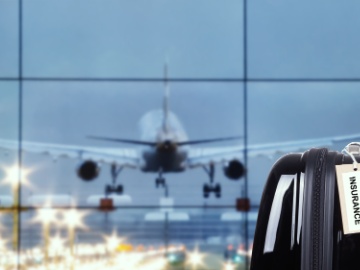
Immigrating to some distant country in another time zone is quite a challenge and it comes with its share of difficulties. Changing from one time zone to another results in jet lag, our sleep-wake cycles are regulated by the circadian rhythm, or what we call the internal clock of our body. When one moves away from their habitual zone to a new time zone, there is a need for our bodies to get in sync with conditions. Any change in time can affect our sleeping patterns, which can eventually affect hormonal levels, moods, and other body functions. The condition can also be termed a temporary sleep disorder.
What Causes Jet Lag?
Jetlag only occurs when we travel by plane and move past two or more time zones because of its speed, which is faster than our body and mind can process. Eastward travel causes more severe jet lag than westward travel. As we fly east, the days get shortened, which disturbs the body's internal circadian rhythm and increases sleep pressure. When traveling eastwards, you move in the opposite direction of the Earth's rotation. This can disrupt your body clock and lead to jet lag.
If you often experience jet lag, taking a western travel route might be a good idea. It can help minimize the effects of jet lag. Traveling to the west delays the body's internal clock's perception of the usual day-night cycle, as the internal clock of most people runs slightly longer than 24 hours. Here are other factors that cause jet lag:
- Low oxygen levels
- Low cabin pressure
- Too much sunlight in the cabin creates a warm temperature.
- Decrease in humidity level
- Long periods of sitting and inactivity
- Dehydration
Jetlag or travel fatigue? Understanding the Symptoms
Feeling fatigued after a long flight is quite common, but it is not jetlag. So, how do you differentiate between travel fatigue and jet lag?
A good night's sleep can help ease the fatigue and tiredness you feel after a flight, but symptoms of jet lag will take a couple of days to go away. While insomnia is the most common symptom, one might also experience the following:
- Constipation or diarrhea
- Daytime fatigue
- Mood swings
- Memory lapses
- Irritability
- Lethargy
- Headaches
Jet lag symptoms gradually go as the body adapts to the new time zone. It will take 48 hours or more for the body to function normally. While jet lag is not serious enough to be concerned about, if you find it difficult to adjust to the new sleep routine, you can consult a sleep specialist.
How to Overcome Jet Lag?
Jet lag can be a real spoiler when you are on holiday. It is always a good idea to plan for some additional days to allow body recovery from the long journey, especially when traveling into different time zones. Preparing oneself ahead of time can also help in reducing its effects. Here are some dos and don’ts that can help you adapt to the new time zone easily:
Try adapting your new sleep pattern.
Adjusting the sleep schedule beforehand makes it easier for the body to adapt quickly to a new place. When traveling eastward, consider going to bed earlier and waking up earlier. For westward travel, go to bed much later than usual.
Stay Hydrated and Restrain Yourself from Alcohol and Caffeine
A beer during a flight might sound harmless, but it does nothing good than disrupt our sleeping patterns, thus leading to serious jet lag. The best thing is to keep sober and avoid caffeinated drinks throughout the journey. Water and herbal tea are the best beverages to relax the mind and help keep the body hydrated over this period.
Keep on the Body Movement
Long hours of sitting can be exhausting. Moving around the cabin, long breathing exercises and leg and arm movements can help you feel energetic and reduce the effect of Jet Lag on one’s body.
Function according to the local time
Set your clock to the new time zone and try to match the schedule even when you are flying. Sleep or take frequent naps during the journey if your flight is destined to land in the morning. If you are arriving after sunset, try not to sleep during the flight.
Use sunlight to adapt to the environment
Sunlight is the natural remedy to fight jet lag. It can help you reset the circadian rhythm and adjust to a new time zone. Spend a few hours in sunlight, especially during the morning hours to naturally adapt to the hours.










